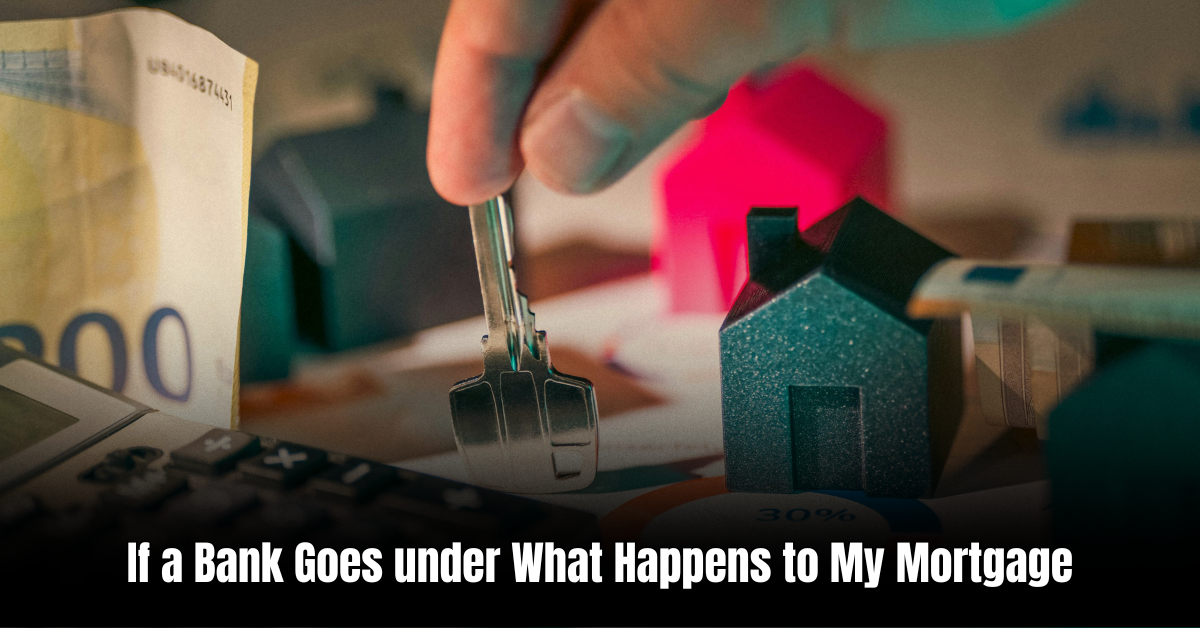Buying a home and securing a mortgage are significant steps in our lives. It allows us to fulfil our dreams of homeownership and build a stable financial future. However, the thought of a bank going under and the potential impact on your mortgage can be worrisome. In this article, we will explore the potential scenarios and reassure you about the protection measures in place.
1. The FDIC Comes to the Rescue
First and foremost, it’s essential to understand that most mortgages are protected in the event of a bank’s failure. The Federal Deposit Insurance Corporation (FDIC), an independent government agency, provides insurance coverage to deposits in banks and savings associations. In the event of a bank failure, the FDIC works to ensure that depositors, including mortgage borrowers, are not left in a state of financial jeopardy.
The FDIC typically arranges for the failed bank’s assets and liabilities to be acquired by another bank. This means that even if your bank goes under, your mortgage will likely be transferred to a new lender. Rest assured, you will still have an obligation to make your monthly payments, but it will be to the new bank.
2. The Transfer of Mortgage Servicing
When a bank changes ownership, it is common for the servicing of your mortgage to be transferred as well. Mortgage servicing involves collecting payments, managing escrow accounts, and providing customer service for homeowners. In the case of a bank failure, the new bank or mortgage company that takes over will effectively become your new mortgage servicer.
It is essential to note that the transfer of mortgage servicing does not affect the terms and conditions of your loan. The interest rate, loan duration, and other key aspects will remain unchanged. You can expect to receive notifications from our team and new mortgage servicers as they make contact, allowing for a smooth transition.
3. Prepayment Penalties and Fees
If your original mortgage agreement includes prepayment penalties or fees, you may wonder what happens to these in the event of a bank failure. Generally, the acquiring bank assumes the terms and conditions of the original mortgage. This means that any prepayment penalties or fees would typically still be applicable under the new lender.
However, it is worth noting that prepayment penalties are becoming less common in modern mortgage agreements. It is always wise to thoroughly review the terms and conditions of your loan before signing, ensuring you fully understand any potential penalties or fees associated with prepayment.
4. Safeguards for Borrowers
The regulatory framework surrounding the banking industry is designed to protect borrowers and ensure the stability of the financial system. In addition to the FDIC, several safeguards are in place to mitigate and address failures Here are a few examples:
| Government Oversight | Mortgage Insurance | Credit Enhancements |
|---|---|---|
| The government closely monitors the financial health of banks and takes corrective action when necessary to prevent failures. | Mortgage insurance, such as FHA loans, provides an additional layer of protection for lenders and borrowers. | Some mortgages have credit enhancements, such as private mortgage insurance (PMI), which offers added security. |
5. Plan for Peace of Mind
While the chance of your bank going under is relatively slim, it’s always sensible to plan and take necessary precautions. Here are a few proactive steps you can take to ensure peace of mind:
- Stay informed about the financial health of your bank.
- Review your mortgage agreement for any prepayment penalties or fees.
- Consider obtaining mortgage insurance for added protection.
- Keep track of any correspondence from your bank or mortgage servicer.
- Regularly check your credit report to ensure accurate reporting of your mortgage payments.
By staying informed and well-prepared, you can navigate any potential challenges that may arise more confidently.
Frequently Asked Questions If A Bank Goes Under, What Happens to My Mortgage: Expert Insights & Answers
What Happens To My Mortgage If A Bank Goes Under?
If a bank goes under, your mortgage will not disappear. It will be transferred to another financial institution.
Conclusion
If your bank goes under, there is no need to panic about your mortgage. The FDIC and other safeguards are in place to protect depositors and borrowers. Your mortgage will likely be transferred to another lender, ensuring minimal disruption to your homeownership journey. Understanding your rights and responsibilities, reviewing your mortgage agreement, and staying informed will give you peace of mind throughout the process. So, relax and enjoy your home knowing that there are safety nets in place to safeguard your mortgage.
Ismail Hossain is the founder of Law Advised. He is an Divorce, Separation, marriage lawyer. Follow him.





Leave a Reply